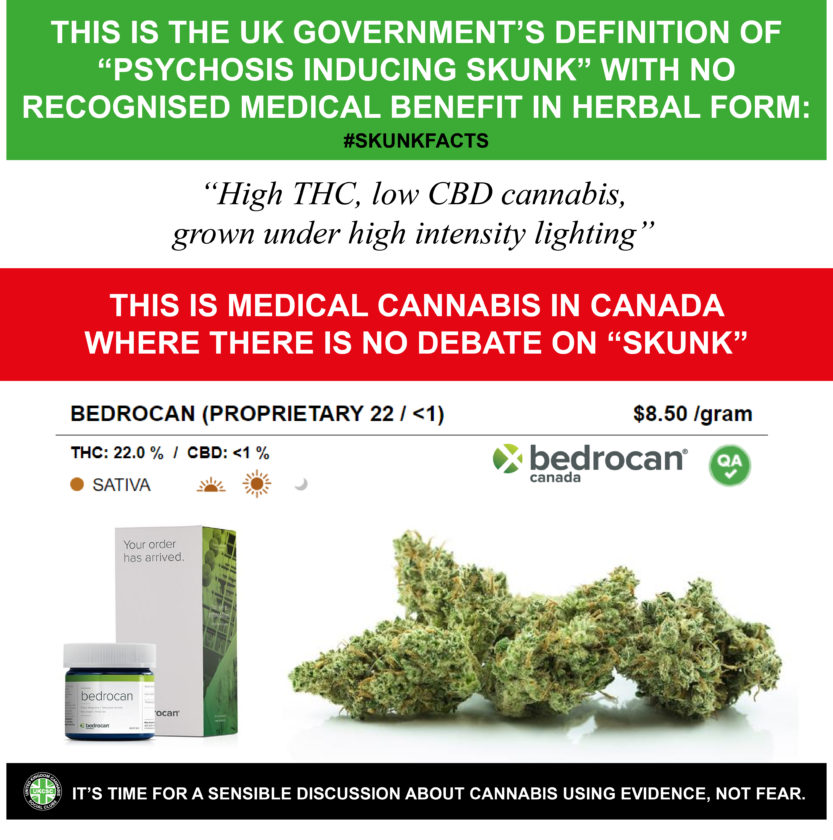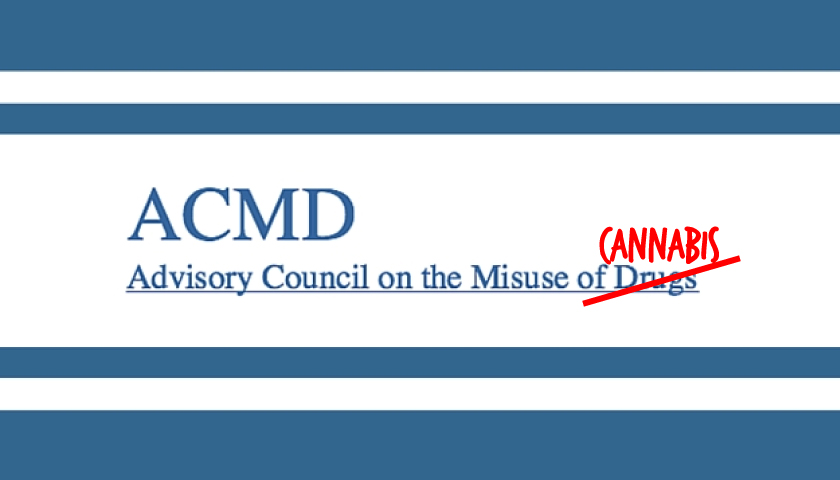The UKCSC has released the following comments on new recommendations made by the Advisory Council on the Misuse of Drugs, which has told the government that doctors in the UK should have the option to prescribe cannabis-derived medicinal products to patients with certain medical conditions:
While herbal cannabis seems to be covered by this new suggested rescheduling, it appears that it would have to be grown in a licensed facility, and not in a way where a patient is able to grow for their own personal care. Patients need the right to grow their own cannabis for medicinal purposes, because it guarantees affordability, they currently do this anyway, and risk prosecution and criminalisation for simply trying to maintain a better quality of life.
The CMO report states that using ‘grown’ cannabis might be potentially dangerous. Sally Davies’ claim that homegrown cannabis is “dangerous” is dangerous in itself, as it tries to separate the truth – that cannabis varieties grown by GW Pharmaceuticals is no different from the varieties that are grown at home by patients. Even Dr Potter, head botanist of GW Pharmaceuticals, admits to growing Skunk No. 1 as part of their genetic library. Is this not the menace which is causing such a problem in society? We need to have a more adult and sensible conversation on this topic in public.
The ACMD says that it “agrees that raw Cannabis (including Cannabis-based preparations) of unknown composition should not be given the status of medication”.
Does this mean that cannabis products of a known and tested chemical composition which are grown at home could be considered medication? Therefore, if home-growing patients had access to a testing facility where they could have their cannabis tested, wouldn’t that be a sensible solution to this very obvious problem? We hope that Sajid Javid takes these points into consideration now that he has received advice from the ACMD.
“Risks to patients may arise from impurities or adulterants” – these risks are already present. Patients are forced to use the black market and unregulated products. Imposing restrictive access controls only further delays patients access to clean medicine. Denying 99% of those who use cannabis medically the ability to apply for a licence, while admitting cannabis is a medicine it’s only going to make more people want to access it.

Recommendation 1, that the “ACMD initially recommends the most stringent controls for prescription of cannabis-based medicinal products” is a farce – we know about the medical efficacy and safety of cannabis products. Patients and growers just need the correct services in order to ensure that what patients are currently receiving and taking now, in the form of herbal cannabis products, meet already existing consumer safety standards.
Recommendation 2 states: “Once the definition of a Cannabis-derived medicinal product has been developed, the ACMD advises that only products meeting this definition be moved into Schedule 2 of the MDR pending our further advice.”
And so “cannabis isn’t being rescheduled” is the reassuring headline. Cannabis itself isn’t being moved out of Schedule 1 status – only approved, regulated products will be. The only reason there is such an urge for licensed cannabis products being given an opportunity (for those who can afford it) is because there are so many people accessing home grown products in the UK with so many positive results. The two main lobbyists in the UK have been licensed producers Tilray and Bedrocan who would see interest in a no grow medical scenario – while there’s no reason that these companies shouldn’t be given the ability to provide safe access to these products, these companies alone are not enough to satisfy the demands of UK medicinal cannabis needs. GW Pharmaceuticals product range and individual product approval process confines them from being a real competitor in the wider medical cannabis market that Bedrocan and Tilray are already prepared to enter into.
Recommendation 3 makes reference that the DHSC, MHRA and Home Office should develop additional frameworks and clinical guidance for ‘checks and balances’ to maintain safe prescribing of Cannabis-derived medicinal products.
After seven years of working directly with patients, and helping them to develop their healthcare management plans with cannabis products, the UKCSC would love the opportunity to offer unique expert advice to the DHSC, MHRA and Home Office alongside the ACMD.
Conclusion 3 states that it is important cannabis is not seen in isolation but as a wider issue of potential barriers to research. The UKCSC fully agrees with the ACMD’s conclusions.
From point 4 onwards, if you carefully read between the lines, the whole focus and emphasis of the letter seems to be the unintended harms caused by the Psychoactive Substances Act. This issue of the cheap and abundant explosion of synthetic cannabinoids into the homeless and prison populations is one which Lloyd Eggs from the UKCSC raised with Owen Bowden Jones at the 8th Annual British Pharmaceutical Society conference on Cannabinoids.
Follow the UKCSC on social media: Facebook – Instagram – Twitter – Reddit





